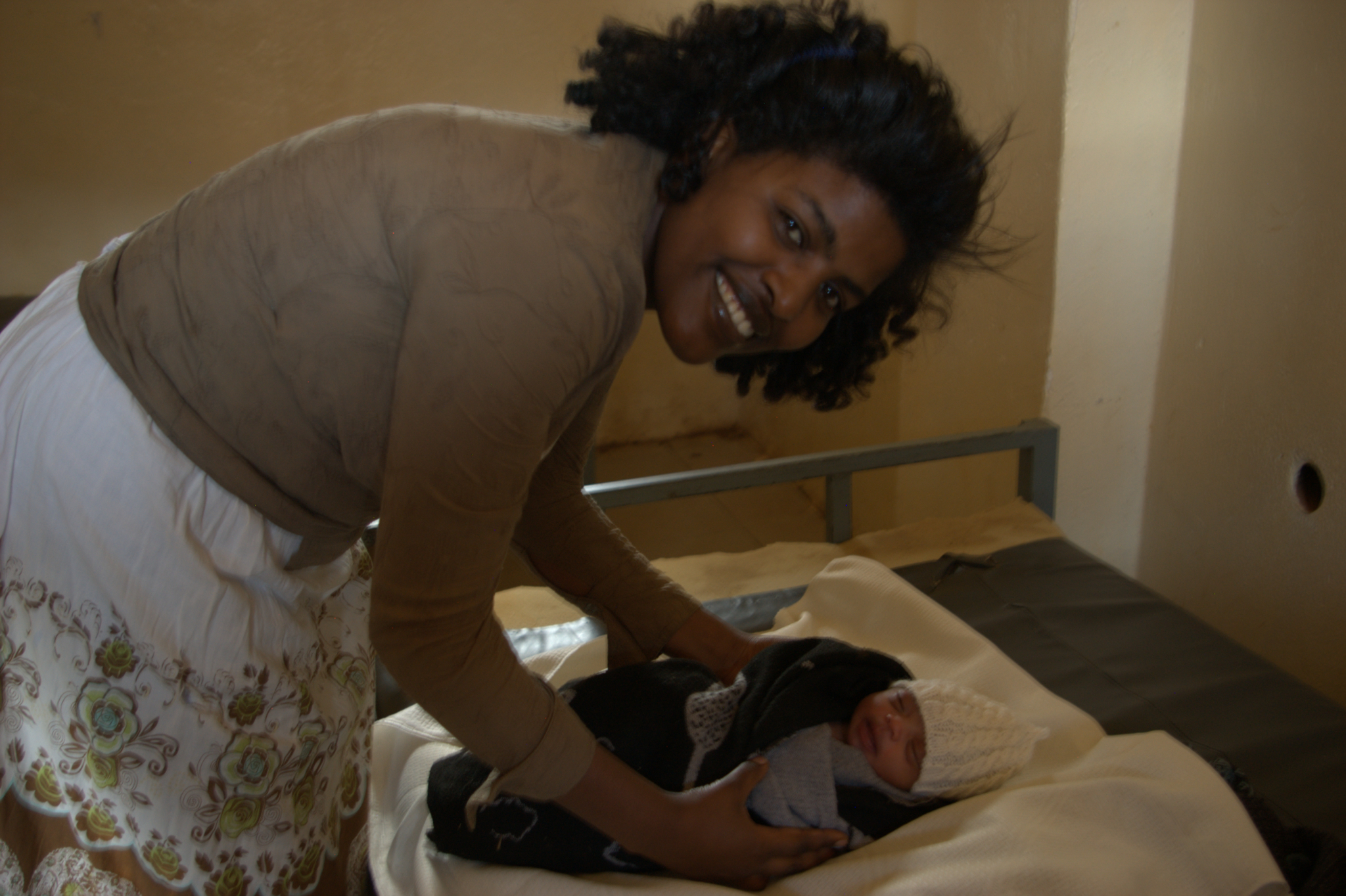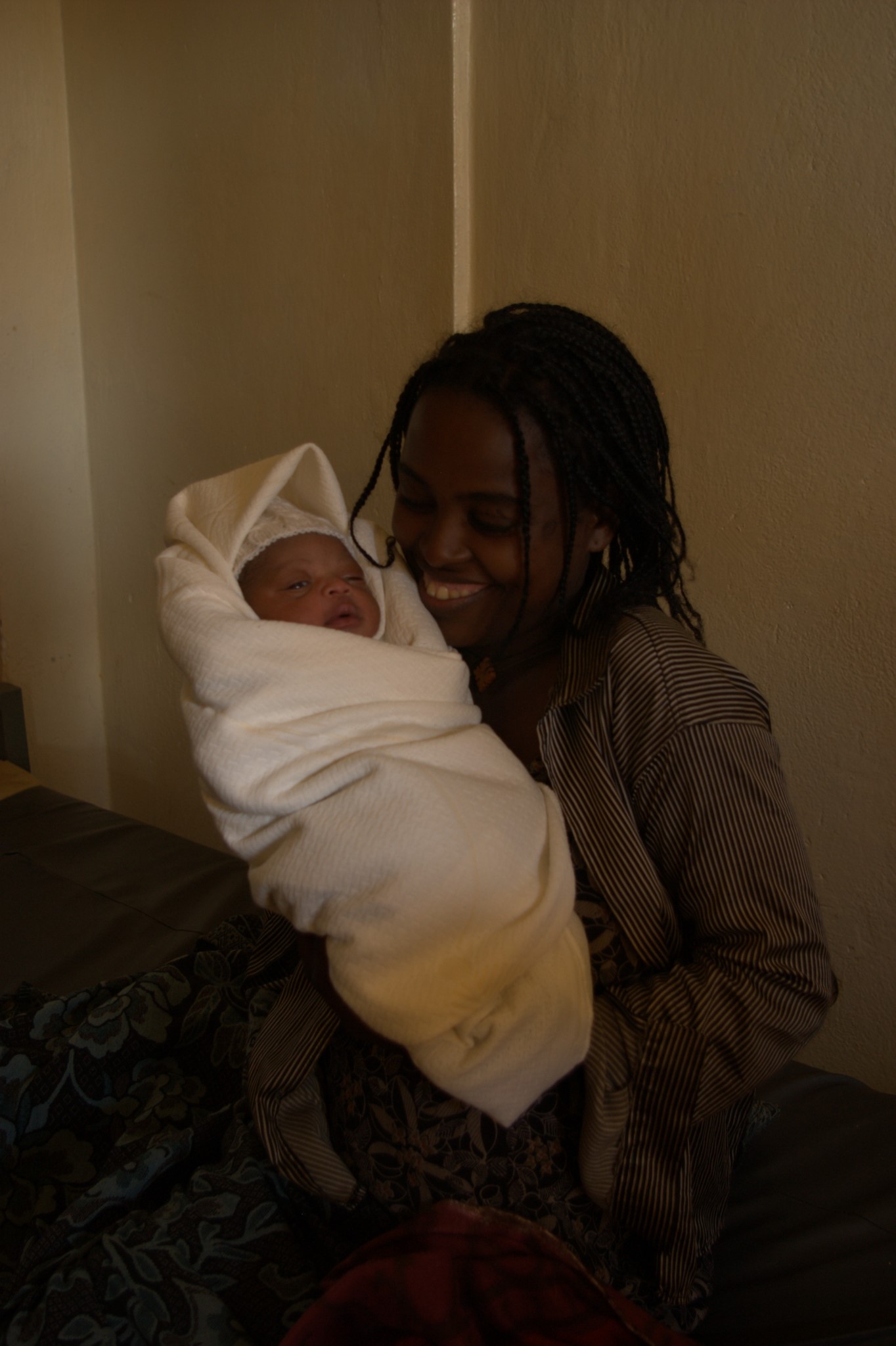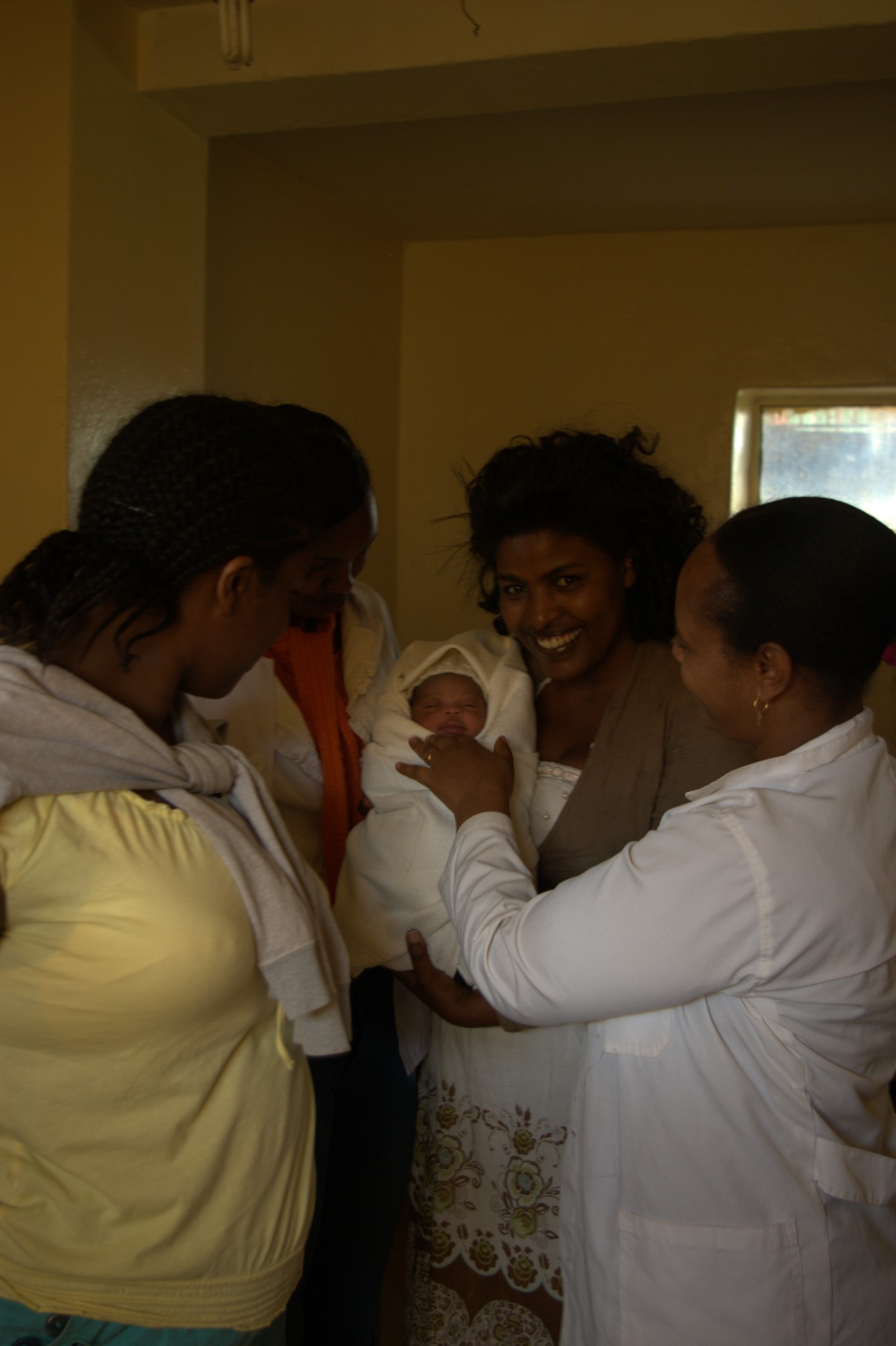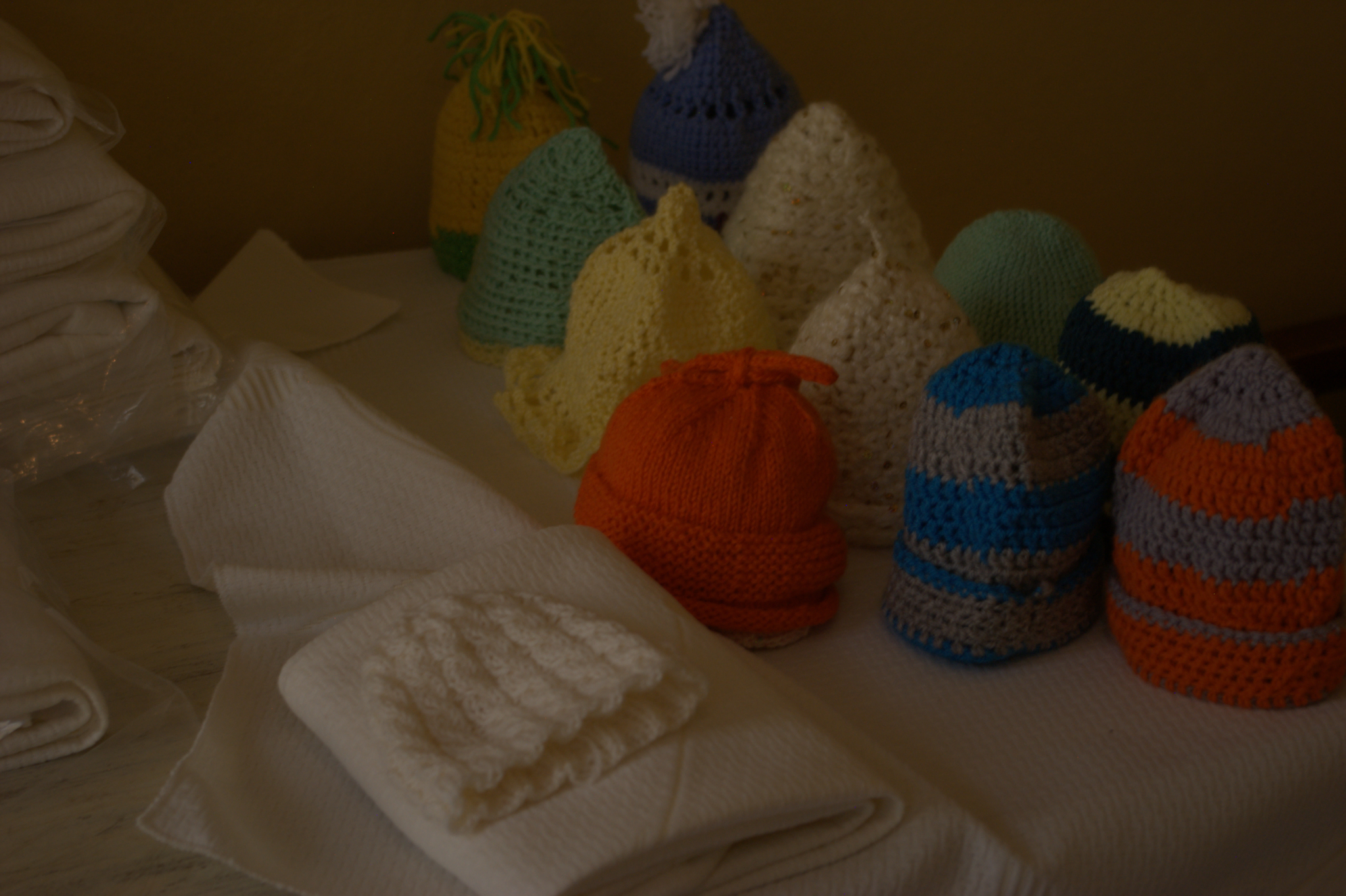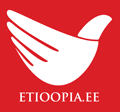A year has passed since I visited the Telbo clinic that is 10 km out of Soddo. I heard how difficult it is to change cultural traditions and root in the habit of giving birth in the safety of a hospital. One of the biggest issues is the loss of the blessing when giving birth in a hospital. Also the majority does not have the means to buy the child a swaddle. Grown-ups old clothes are used for that.
Head of the clinic Hildana Dawit was worried because the support packs for the newborns were running out. The pack is a big motivation to change the local tradition.
This week we were able to hand over the first support packs to Soddo clinic. Following local advice we packed a small hat knitted or crocheted in Estonia, swaddle and a soap into a plastic bag with best wishes on a note and a tag where the receiver of the pack writes their information. We inquired in the hospital what happens when the mother does not have milk. The answer for that was astonishing. When the family has their first baby the woman’s mother or the closest female relative takes the young mother in with the baby. During next three months the only thing the mother does is to feed and take care of her baby. Such care excludes any trivial matters and the problem if the mother should not have milk. We couldn’t accept the answer and kept asking. The final answer we got was difficult to understand considering our popular beliefs. Situations like these arise very-very seldom and absence of mothers milk means the death of the newborn.
MERLE
